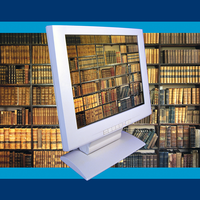Empowerment

It is sometimes frustrating to see peoples’ medical problems reduced – incorrectly – to a single factor. Worse yet, failing to see that all the systems of the body, the mind, our relationships, environment and spirituality all have a part to play in the maintenance of our health and the treatment of disease.
I grew up in England and benefited from and then trained and worked in the National Health Service. Which is nothing of the sort: it is a disease management service.
The problem lies not with money or inefficient systems, but with an emphasis on management rather than prevention of disease.
The next revolution in healthcare is not being driven by science and technology, but by empowerment: being given the tools for taking personal responsibility for our own health and well-being.
Not just so that we feel better and may have the chance of avoiding costly medicines, but so that we can grow as individuals.
The ultimate goal of any form of personal development, of psychotherapy and indeed of medicine, is to remove restrictions from people.
Freedom unlocks human potential.
We are inundated with information about health. Much of the information is confused and confusing. Integrated Medicine is based on the idea of integrating different approaches and integrating the different parts of a person and all of his or her relationships form cell to soul.
The key to that is understanding how to fit all the pieces together, whether a person is a Buddhist or a Baptist, a meat-eater, vegan or junk food addict. To be able to answer these kinds of questions:
- What diet is right for me personally?
- What type of exercise should I do at my age, level of fitness and time constraints?
- How can I get the quality sleep that I need with all the demands on my time?
- How can I manage the stress in my life?
- How can I manage my emotions so that I run them instead of them running me?
- How can I have satisfying connections with other people?
- How can I find my meaning and purpose in life?
The good news is that we already have answers to most of those questions and we have developed hundreds of tips and techniques that people can do in minutes a day.
I revealed some in the book and CD series Healing, Meaning and Purpose, and in response to a great many requests, I shall be sharing many of these techniques in the months to come.
“Health is a state of complete harmony of the body, mind and spirit. When one is free from physical disabilities and mental distractions, the gates of the soul open.”
–B.K.S. Iyengar (Indian Yoga teacher, 1918-)
“If we could learn how to balance rest against effort, calmness against strain, quiet against turmoil, we would assure ourselves of joy in living and psychological health for life.”
–Josephine L. Rathbone (American Sports Physiologist and Pioneer in Health and Relaxation, 1899-)
“Personal transformation can and does have global effects. As we go, so goes the world, for the world is us. The revolution that will save the world is ultimately a personal one.”
–Marianne Williamson (American Author, Unity Church Minister and Lecturer on Spirituality, 1952-)
“Questions focus our thinking. Ask empowering questions like: What’s good about this? What’s not perfect about it yet? What am I going to do next time? How can I do this and have fun doing it?”
–Charles Connolly (American Psychologist)
Biomedical Journals and Open Access

I have written before about my enormous admiration for the global attempt to make research freely available to everyone. This is such an important step toward patient empowerment and greater transparency in science and medicine.
There is currently an online petition to support free and open access to European research, and if you also believe in the principles of integrity, transparency and personal empowerment, you may want to consider signing.
I was gratified to see how many major journals are now making articles immediately and permanently available online
without charge. A number of journals require an institutional or a
personal subscription to view other content, such as reviews or paper
reports. Free trial subsciptions to these journals are available.
This seems to be the most up-to-date listing, and everyone involved really deserves our gratitude. I shall continue to update this list as more journals become involved.
| A B C D E F G H I J K L M N O P X Y Z |
||
|
Open Access

I have had a number of kind comments about my brief piece concerning the revolution in open access to information.
Few people have yet realized the impact that it will have on our lives.
I am most honored to have just received this note from Peter Suber:
Hi Richard: PLoS is part of a larger movement for open access to
peer-reviewed research literature, and a lot has happened since PLoS
was launched in 2001. For details, see my Timeline [ http://www.earlham.edu/~peters/fos/timeline.htm ], and for daily updates see my blog, Open Access News [ http://www.earlham.edu/~peters/fos/fosblog.html ].
I have had a good look at Peter’s material, and I have also subscribed to his blog, so it will now appear on the left-hand side of this blog under “What I’m reading,” so you can access his writings without having to dart all over the place.
The entire open access movement encompasses a great deal more than just scientific and medical research, and is all precisely aligned with my aim of achieving greater personal empowerment, so that you can take control of your life, your health, your future and the legacy that you leave behind.
Several correspondents have agreed with my point, that the next imperative is to teach people how to use this information.






